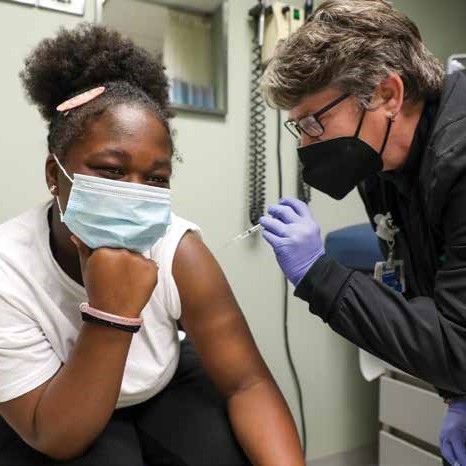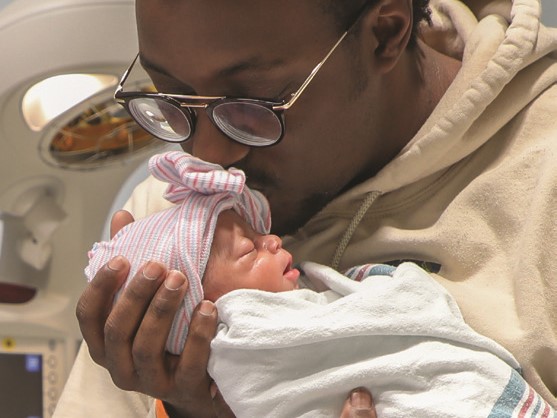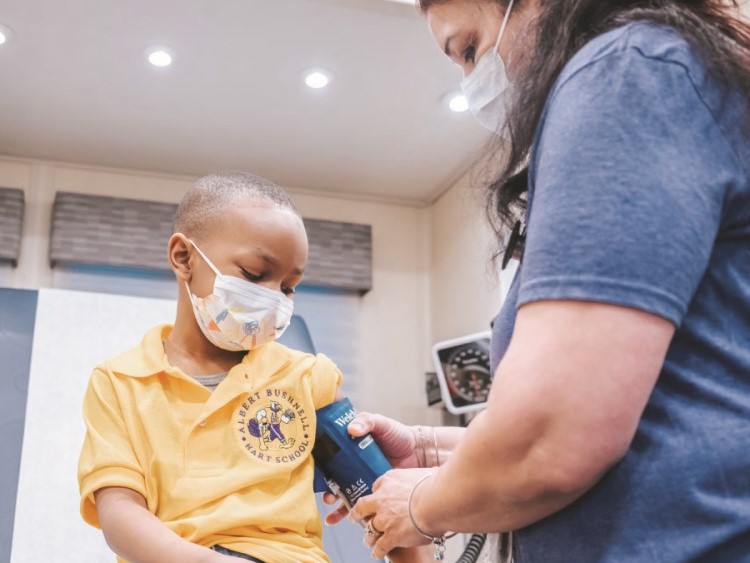- Home
- The MetroHealth Foundation
- Health Equity CLE
- Why MetroHealth?
Health Equity CLE: Why MetroHealth?
MetroHealth has been at the forefront of welcoming and listening to patients, addressing health inside and outside the clinical boundaries of medicine.
MetroHealth Has Been Impacting Health Equity for 200 Years
Current programs
We have expanded our scope over generations to capture a more complete picture of patients and their lives beyond hospital walls.
We are already changing lives and working toward health equity through the programs outlined below. The Health Equity CLE Fund will support expanding initiatives across the system that utilize our extensive research and experience to address equity in new ways.
- The Institute for H.O.P.E.™ includes several initiatives focused on helping low-income residents receive support, as through the innovative Community Advocacy Program that brings on-site legal services to qualifying patients and families.
- Screened nearly 150,000 individuals and made more than 30,000 care referrals across a variety of services for nearly 16,000 residents of Cuyahoga County.
- Food as Medicine Clinics provide more than 250 program participants with a food “prescription” for a three-day supply of healthful food and nutrition education.
- Opportunity Centers at Buckeye Health Center and the Vía Sana housing development help remove barriers to good health by providing access to services that help with needs.
- The Trauma Recovery Center offers victims of trauma holistic support to address the medical, emotional and social impacts of trauma.
- The Students Are Free to Express (SAFE) Project is an arts-based, psychologically informed, primary prevention curriculum aimed at addressing the anxiety, depression and suicidality caused by trauma and toxic stress that Cleveland’s children face.
- MetroHealth’s Community Health Centers operate within a community-based health equity model to share resources from MetroHealth and its partners directly within the neighborhoods that need them most.
- Maternal health initiatives are expanding, including the Nurse-Family Partnership home-visiting program for new and expectant mothers; a doula and midwifery program; and the Centering Pregnancy program, offering extra care with a provider and other expectant mothers in a group setting.
- Health fairs and expos tailored to men, women and children have welcomed community members directly into MetroHealth’s care, providing access to education that can eliminate disparities.
- The School Health Program is a national model for school-based health delivery, providing clinical services for more than 4,800 students enrolled at more than 25 schools throughout Cuyahoga County.
- The Center for Health Equity, Engagement, Education and Research conducts clinical research and education designed to reduce health disparities in the communities it serves.

Other Ways We Impact Health Equity
These are only a small snapshot of the many key activities MetroHealth has undertaken to eradicate health disparities. Other activities and departments include:
| BREAST/Amigas Unidas | Center for Cancer Research |
| Clinical Trials Unit | Compass Services |
| Healthcare Anchor Network (HAN) | Hospital in the Home |
| Lincoln-West School of Science & Health | MetroHealth/Tri-C Access Center |
| The MetroHealth Autism Assessment Clinic | Moms’ House |
| Motivation and Empowerment Clinic (MEC) | Patient Transport Team |
| Pharmacy Home Delivery | Pop It To Block It |
| Population Health Equity Research Institute | Positive Peers |
| Pride Network/Kidz Pride | Project DAWN |
| Red Carpet Care Program | Rehabilitation Institute |
| Ryan White HIV/AIDS Part A |
Health Equity at MetroHealth: A History
Impacting Health Equity for 200 years.
1837
In 1837 our founders centralized healthcare services for people suffering from the physical and mental distress associated with poverty, smallpox and cholera.
1929
The stock market crash of 1929 ushered in the Great Depression and impoverished times that put huge demands on healthcare across the county with the national outbreak of tuberculosis (TB). MetroHealth established a special TB pavilion on its campus and expanded outpatient services to the growing need. The average patient fee collected in the mid-1930s was $0.02.
1950s
In the 1950s, MetroHealth led the nation in research and treatment of polio and was among the first in the nation to prescribe physical therapy for polio patients.
1955
In 1955, Emma Plank, assistant professor of child development in Western Reserve University School of Medicine, founded the Child Life and Education Program, the first of its kind to address education, social and psychological needs of children receiving long-term medical care.
2007
In 2007, MetroHealth opened the region’s first Pride Clinic devoted to serving the specific health needs of greater Cleveland’s LGBTQ+ community.
2019
In 2019, the Institute for H.O.P.E.™ (I4HOPE) launched with the goal of assessing a more complete picture of patients’ lives, including health-related social needs such as access to food, safe housing, transportation, job opportunities and more.
2020
In 2020, MetroHealth’s quick but expansive response to the COVID-19 pandemic included the activation of a COVID hotline that triaged more than 66,000 calls; conducting more than 80,000 tests at houses of worship, group homes, homeless shelters and other locations; and a COVID-response plan at the Cuyahoga County Jail that ensured no inmate died of the virus.
2021
In 2021, construction of MetroHealth’s Vía Sana, a 72-unit affordable housing development adjacent to its main campus, and a 112-bed behavioral health and addiction hospital in Cleveland Heights.
2022
In 2022, MetroHealth welcomed new president and CEO Dr. Airica Steed, Ed.D, MBA, RN, CSSMBB, FACHE, a dynamic and visionary leader whose lived experience with racial bias in healthcare fuels her pursuit of health equity.
Support the Health Equity CLE Fund
Join us on the journey toward health equity. Support Health Equity CLE today.
Give to Health Equity CLE
Why Health Equity
MetroHealth is in a position to face Cleveland’s drastic health disparities head-on.
Learn More
Health Equity CLE
With your support, the Health Equity CLE Fund will take us into the future.
Learn More
